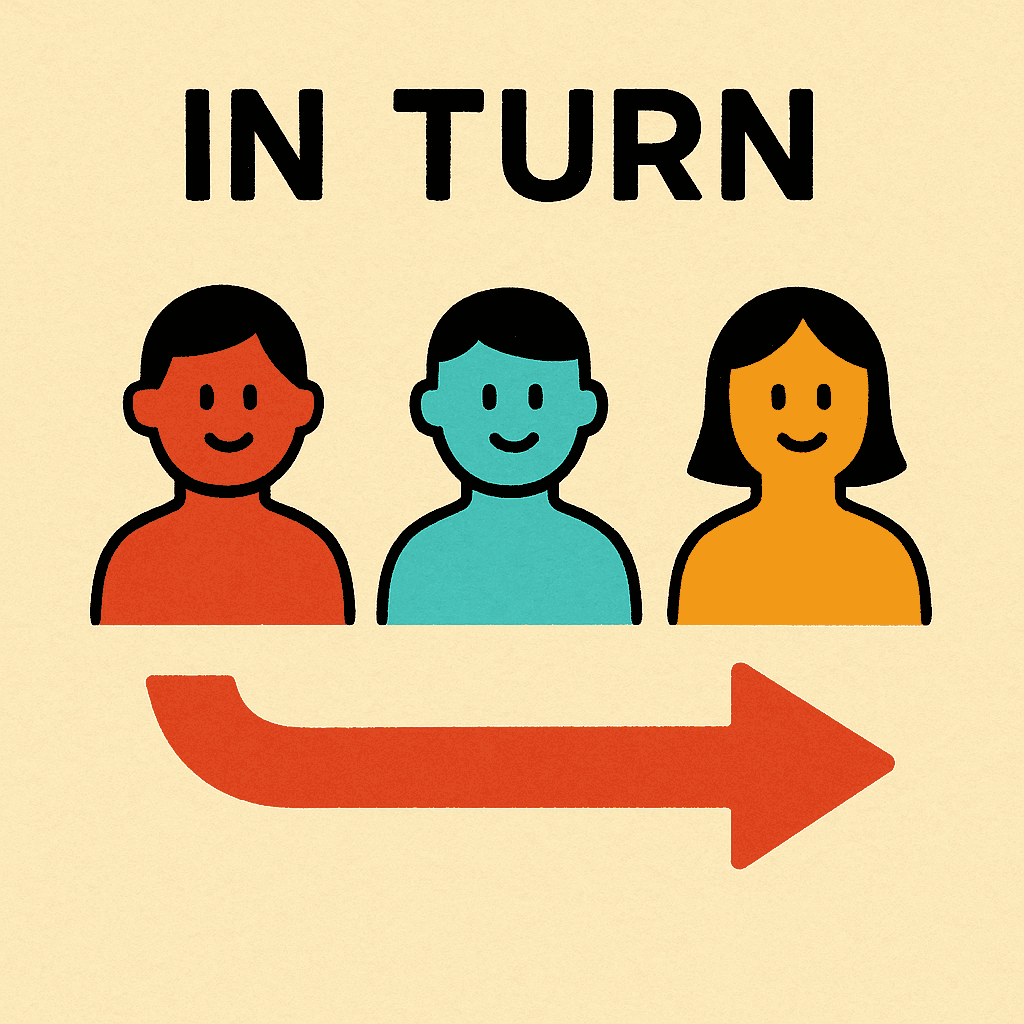Meaning
- In turn means one after another or as a result / consequently depending on context.
- Sequence/Order: Refers to people or things doing something one after another.
- Result/Consequence: Refers to one action causing another as a result.
Grammar and Usage
-
Part of speech: Adverbial phrase.
-
Usually placed at the beginning, in the middle, or at the end of a sentence.
-
Common sentence patterns:
- "They spoke in turn."
- "This will help him, which in turn helps us."
Common Phrases
- "take turns" (closely related expression)
- "speak in turn"
- "act in turn"
- "which in turn"
Collocations
- speak in turn
- respond in turn
- which in turn leads to
- pass in turn
Examples
- Each student will present their project in turn.
- The children took the swings in turn.
- The manager praised the team, which in turn boosted their motivation.
- One mistake can cause another, which in turn creates a bigger problem.
- The teacher asked questions, and the students answered in turn.
- Helping others often brings kindness back to you in turn.
- He gave her advice, and she in turn shared it with her friends.
- The planets move around the sun, and the moon moves around the Earth in turn.
Synonyms or Related
- Sequential use: one after another, successively, alternately.
- Consequence use: as a result, consequently, therefore.
Antonym
- Out of turn (not in proper order or sequence).
- Independently (without relation to a result).
